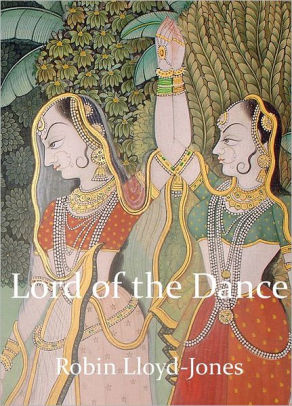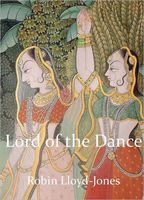- Welcome to FictionDB, Guest
- | My Account
- | Help

Lord of the Dance — Robin Lloyd-Jones

Two Englishmen are travelling the dusty roads of 16th century India: Thomas Coryat, a physician and man of science, who comes to India to find a cure for his wife's leprosy in the famed medical library at Agra; and Brother Peter, known as Frog, who has come to convert the heathen to the True Faith. The friendship between them is full of strife, as is Akbar's Mogul Empire. Opposing armies are on the move, preparing to do battle with their fighting elephants and fire-camels. Thomas and Frog are caught up in the conflict, together with a troupe of dancers. Amongst the troupe is Bamian, a wickedly endearing dwarf and Mohini, a dancing-girl with whom Thomas falls in love.
Bawdy, bloody, part tragedy, part comedy, Lord of the Dance, was winner of the BBC Bookshelf/Arrow First Novel Competition and was also a Booker Prize entry.
Some reviews of Lord of the Dance:
A marvellously readable, richly coloured adventure... written with style, character and deft touches of philosophy, humour and irony. (Graham Lord, Sunday Express).
Once every four or five years there comes along a novel which is just not well written, worthy or entertaining, but one which bears the stamp of greatness... Lord of the Dance is going to become a modern classic. (John Hewitt, Telegraph & Argus).
Astonishing imaginative brilliance. (Stuart Evans, The Times).
The setting of the novel in the 16th century Mogul Empire of northern India is realised with a brilliance of imagination which is sustained throughout... This book is not just a winner, it is a significant literary discovery. (John Linklater, The Glasgow Herald).
Lord of the Dance is funny, tragic, tender and bloody. One is moved to laugh and cry at almost every turn of the vividly embellished plot... Although set in the 16th century, a great deal of it is valid today. (Evening Times).
Bawdy, bloody, part tragedy, part comedy, Lord of the Dance, was winner of the BBC Bookshelf/Arrow First Novel Competition and was also a Booker Prize entry.
Some reviews of Lord of the Dance:
A marvellously readable, richly coloured adventure... written with style, character and deft touches of philosophy, humour and irony. (Graham Lord, Sunday Express).
Once every four or five years there comes along a novel which is just not well written, worthy or entertaining, but one which bears the stamp of greatness... Lord of the Dance is going to become a modern classic. (John Hewitt, Telegraph & Argus).
Astonishing imaginative brilliance. (Stuart Evans, The Times).
The setting of the novel in the 16th century Mogul Empire of northern India is realised with a brilliance of imagination which is sustained throughout... This book is not just a winner, it is a significant literary discovery. (John Linklater, The Glasgow Herald).
Lord of the Dance is funny, tragic, tender and bloody. One is moved to laugh and cry at almost every turn of the vividly embellished plot... Although set in the 16th century, a great deal of it is valid today. (Evening Times).
Genres
Click on any of the links above to see more books like this one.

